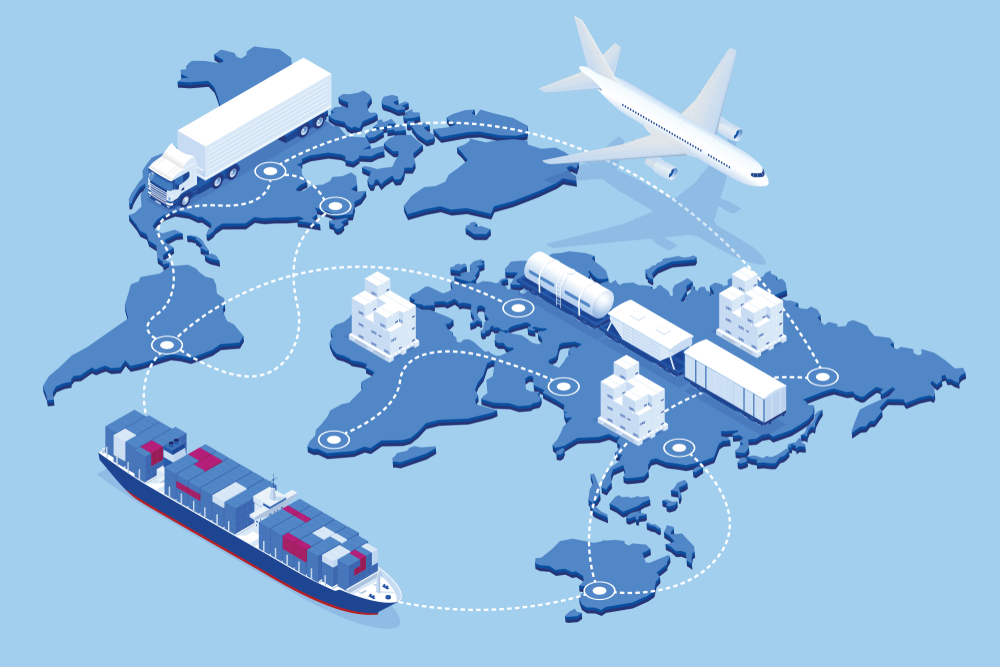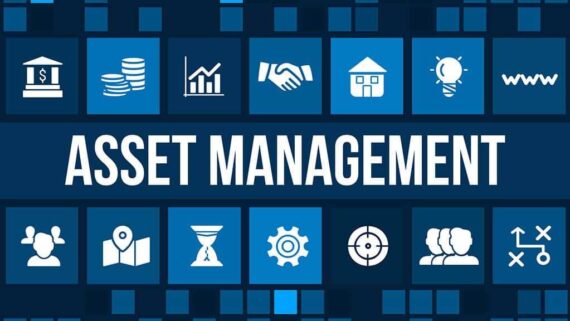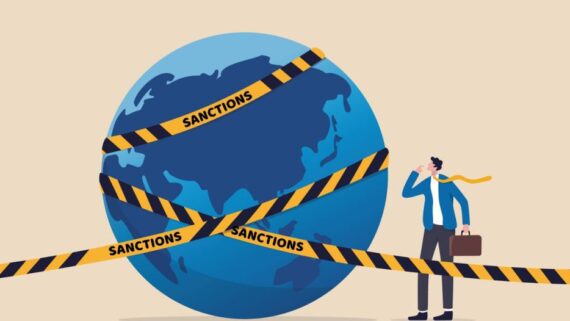Customs Control in Turkey plays a critical role in regulating the flow of goods across borders, ensuring compliance with national laws and international trade agreements. It involves a range of activities, including inspection of goods, collection of tariffs and taxes, enforcement of import/export restrictions, and prevention of smuggling. Turkey’s customs system is governed by Customs Law No. 4458, which aligns with the EU Customs Code and global trade standards. Secondary legislation, including regulations and communiqués, provides detailed guidelines for customs procedures, risk management, and dispute resolution. Businesses operating in Turkey must navigate customs controls carefully to optimize processes, avoid penalties, and maintain compliance. Bıçak Customs and Foreign Trade Services team aims to support companies in matters such as compliance and risk management in customs transactions, predictability of costs in transactions and increased efficiency, effective relationship management with authorities, and rapid support for operational foreign trade transactions.
Customs Controls in Turkey: Regulations and Practices
Customs Control refers to the regulatory measures and procedures implemented by customs authorities to ensure compliance with laws and regulations governing the movement of goods, services, and people across a country’s borders. In the context of Turkey and international trade, Customs Control encompasses a range of activities aimed at facilitating legitimate trade while protecting the economy, security, and public health.
Key Aspects
- Import and Export Regulations
Customs authorities in Turkey monitor the import and export of goods to ensure compliance with national and international trade regulations, such as tariffs, quotas, and prohibitions. - Customs Declarations and Documentation
Traders must provide accurate documentation, including invoices, certificates of origin, and customs declarations, to Turkish customs authorities for review. - Inspection of Goods
Customs authorities inspect goods to ensure they align with the declared information and comply with regulations, such as product standards, safety, and labeling requirements. - Tariff and Tax Collection
Customs controls include the assessment and collection of duties, taxes, and fees applicable to imported or exported goods. - Trade Facilitation Agreements
Turkey’s customs procedures are aligned with international agreements such as the World Trade Organization (WTO) Trade Facilitation Agreement and European Union customs frameworks, given Turkey’s customs union with the EU. - Prohibition and Restriction Enforcement
Customs control involves preventing the import or export of illegal or restricted items, such as counterfeit goods, dangerous materials, or items under sanctions or embargoes. - Export Controls and Sanctions Compliance
In international trade, customs control plays a role in enforcing export controls and sanctions, ensuring that restricted technologies, dual-use goods, or sanctioned products do not enter or leave the country unlawfully. - Technology and Risk-Based Approaches
Turkish customs use technologies like automated systems (e.g., BİLGE System) and risk management to expedite low-risk shipments and focus on potentially non-compliant transactions.
Importance of Customs Control in International Trade
- Trade Compliance: Ensures that traders comply with domestic and international laws.
- Revenue Collection: Contributes to government revenue through duties and taxes.
- Economic Security: Protects domestic industries by preventing dumping or unfair trade practices.
- National Security: Prevents trafficking of illegal goods and addresses potential security threats.
- Public Health and Safety: Ensures imported goods meet health and safety standards.
For businesses involved in international trade with Turkey, understanding and adhering to customs control procedures is essential to avoid penalties, delays, or legal challenges. It also facilitates smoother trade operations and builds trust with Turkish authorities.
Customs Authorities
Customs authorities in Turkey are responsible for implementing and enforcing customs control measures in accordance with national laws, international trade agreements, and global standards. These authorities play a crucial role in regulating cross-border trade to ensure compliance, facilitate legitimate commerce, and safeguard the country’s economic and security interests.
Key Customs Authority: Ministry of Trade
The Ministry of Trade of the Republic of Turkey oversees customs operations and is the primary body responsible for creating and enforcing customs policies. The Ministry operates through its Customs Enforcement Directorate and Regional Directorates to manage customs activities across the country.
Structure and Functions
- Regional Customs Directorates
Turkey’s customs system is divided into regional directorates responsible for managing customs operations at borders, ports, airports, and free trade zones. These include key customs offices at major trade hubs like Istanbul, Izmir, and Mersin. - Customs Enforcement Units
These specialized units monitor and inspect goods for compliance, prevent smuggling, and investigate violations of customs laws. They coordinate closely with other law enforcement agencies. - Customs Laboratories
Turkey operates customs laboratories for product testing and certification to ensure goods meet regulatory standards, such as those related to safety, health, and quality. - Trade Facilitation Systems
Turkish customs authorities utilize advanced technology, including the BİLGE (Computerized Customs Activities) System, to streamline customs procedures, enhance transparency, and reduce processing times. The system supports electronic declarations, risk-based inspections, and real-time tracking of goods. - Risk Management and Inspection
The customs authorities use a risk-based approach to target high-risk shipments for inspection, ensuring efficient handling of low-risk goods. This reduces delays and facilitates smoother trade operations. - Collaboration with International Organizations
Turkey’s customs authorities work closely with international bodies like the World Customs Organization (WCO), the European Union, and the World Trade Organization (WTO) to harmonize its customs practices with global standards.
Responsibilities of Customs Authorities
- Customs Tariff and Tax Collection: Assessment and collection of import duties, VAT, and other taxes on goods.
- Border Security: Preventing smuggling, trafficking, and illegal trade activities.
- Trade Compliance: Enforcing trade restrictions, quotas, and sanctions as per Turkish and international law.
- Economic and Public Health Protection: Ensuring the safety and compliance of imported products with Turkish standards.
- Export Control and Sanctions: Monitoring compliance with international sanctions and export control laws.
- Dispute Resolution: Addressing and resolving customs-related disputes between traders and the authorities.
Key Developments and Reforms
Turkey’s customs authorities have undergone significant modernization to align with international trade practices. Key reforms include the implementation of digital systems, improved risk management techniques, and participation in global initiatives like the Authorized Economic Operator (AEO) program, which grants streamlined customs clearance to trusted traders.
By maintaining robust customs operations, Turkish customs authorities contribute to economic growth, trade facilitation, and national security, positioning Turkey as a critical hub for international commerce.
Primary and Secondary Legislation
Turkey’s customs legal framework is designed to regulate and facilitate the movement of goods across its borders while ensuring compliance with international agreements and protecting national interests. The legal structure comprises the primary legislation, Customs Law No. 4458, supported by a comprehensive set of secondary legislation, including regulations, communiqués, and directives.
Customs Law No. 4458
The foundational legal document governing customs operations in Turkey is Customs Law No. 4458, enacted in 1999. This law aligns Turkey’s customs regime with the EU Customs Code, reflecting Turkey’s obligations under its Customs Union Agreement with the European Union. Key provisions of the law include:
- Customs Procedures: Regulations for importing, exporting, transit, warehousing, and processing goods.
- Customs Duties and Tariffs: Rules for the assessment, payment, and collection of customs duties, including preferential tariffs under trade agreements.
- Risk Management: Provisions for implementing a risk-based approach to inspections.
- Sanctions and Penalties: Enforcement measures for violations, including fines, seizures, and legal action.
- Dispute Resolution: Procedures for resolving disputes between traders and customs authorities.
Secondary Legislation
Secondary legislation provides the detailed implementation framework for Customs Law No. 4458. This includes regulations, communiqués, and directives issued by the Ministry of Trade. Key examples are:
- Customs Regulation (Gümrük Yönetmeliği)
The Customs Regulation outlines detailed procedures for customs clearance, including documentation requirements, processing times, and rights of appeal. - Free Zones and Special Regimes
Regulations define procedures for operating in free zones, temporary importation, and inward/outward processing schemes, which are designed to promote trade and manufacturing. - Tariff and Classification Rules
Secondary legislation establishes guidelines for the classification of goods based on the Harmonized System (HS) and the application of tariffs under Turkey’s trade agreements. - Export Control and Dual-Use Goods
Communiqués address the regulation of strategic and dual-use goods in line with Turkey’s commitments to international export control regimes. - Customs Valuation Rules
Regulations establish methods for determining the customs value of goods, ensuring compliance with World Trade Organization (WTO) - Authorized Economic Operator (AEO) Regulations
These regulations provide criteria for obtaining AEO status, enabling companies to benefit from simplified customs procedures. - Regulations on Sanctions and Prohibitions
Turkish customs legislation includes lists of goods subject to import/export bans or restrictions, in compliance with international sanctions.
Key Harmonization with International Agreements
Turkey’s customs law is heavily influenced by its commitments under international treaties and agreements, such as:
- The Customs Union Agreement with the EU.
- Membership in the World Customs Organization (WCO).
- Obligations under the WTO Trade Facilitation Agreement.
Implementation and Modernization
To support the effective implementation of the law and secondary legislation:
- Turkey has adopted digital customs systems like the BİLGE System for online customs declarations.
- Regular updates to regulations are issued to adapt to changes in international trade dynamics and agreements.
By integrating primary and secondary legislation, Turkey’s customs legal framework ensures a robust, transparent, and efficient customs regime, facilitating international trade while protecting national interests.
Export Controls on Specific Goods
Turkey imposes export controls on certain categories of goods to comply with international agreements, safeguard national security, and protect cultural and environmental heritage. These controls are regulated through specific laws and communiqués that establish procedures and restrictions on the export of sensitive products. Key categories of goods subject to export controls include:
1. Military Equipment and Technologies
- The export of military equipment, weapons, war tools, explosive materials, and military technologies is strictly controlled.
- These restrictions are governed by the Communiqué setting out the List regarding War Tools and Equipment, Weapons, Ammunitions and Spare Parts thereof, Military Explosive Materials and Technologies thereof, established under Law No. 5201.
- Exporters must obtain prior authorization to ensure compliance with national security measures.
2. Cultural and Historical Artifacts
- Cultural and historical artifacts, as well as certain natural resources, are subject to stringent export controls to preserve Turkey’s heritage.
- This includes restrictions on animals, specific types of wood, and agricultural products such as tobacco seeds, cannabis sativa, racing horses, and sugar.
- These controls are outlined in Communiqué No. 96/31 on the Goods whose Export is Prohibited or Subject to a Pre-Authorization and Communiqué No. 2006/7 on the Goods whose Export is Subject to Registration.
3. Nuclear and Nuclear Dual-Use Goods
- Goods related to nuclear materials and dual-use technologies (items with both civilian and military applications) are subject to strict monitoring.
- These controls are regulated under Communiqué No. 2007/1 on the Warning List regarding Nuclear Transfer and the List of Nuclear Dual-Use Goods.
- Exports in this category require registration and compliance with international non-proliferation treaties.
By enforcing these regulations, Turkey ensures its export activities align with international obligations and national priorities. Businesses involved in exporting controlled goods must navigate these legal frameworks carefully and obtain the necessary permits and approvals to avoid penalties.
Legal Consequences of Violating Export Controls
Turkey enforces strict penalties for violations of export control regulations to ensure compliance with legal and administrative measures. These penalties are outlined in Article 235/2 of the Customs Law and Article 3 of Law No. 5607 on Anti-Smuggling, addressing both administrative and criminal consequences.
Administrative Penalties
Violations of export controls under the Customs Law may result in significant financial penalties:
- Prohibited Exports: If the export of a good is explicitly prohibited by an administrative act, the exporter may face an administrative fine equal to double the customs value of the goods.
- Unlicensed or Conditional Exports: Exporting goods without the required licence, failing to meet stipulated conditions, or proceeding without obtaining necessary approvals can lead to an administrative fine amounting to 10% of the customs value.
Criminal Penalties
In addition to administrative fines, criminal sanctions are imposed under Law No. 5607 on Anti-Smuggling:
- Prohibited Exports: Exporting goods prohibited by law may result in imprisonment for a term of one to three years.
- Judicial Fine: Offenders may also face a judicial fine of up to 5,000 days.
- Aggravated Offences: If the act constitutes another offence requiring a heavier penalty, harsher sanctions may apply in line with the relevant legal provisions.
By imposing these penalties, Turkey emphasizes the importance of adhering to export control regulations and deters non-compliance. Businesses involved in export activities must ensure strict compliance with licensing requirements and prohibitions to avoid significant legal and financial repercussions.
Customs and Foreign Trade Advisory Services
Bicak offers comprehensive legal and consulting services tailored to businesses engaged in international trade and customs operations in Turkey. Leveraging expertise in Turkish customs law and international trade regulations, the firm ensures clients’ compliance with legal requirements while optimizing their trade processes. Key services include:
1. Customs Consulting Turkey
- Advising on customs regulations and requirements for importing and exporting goods in Turkey.
- Providing insights on tariff classifications, duty exemptions, and compliance with international agreements.
2. Foreign Trade Consulting Turkey
- Guidance on cross-border trade strategies, including import/export licensing, certifications, and documentation.
- Advising on trade restrictions, quotas, and sanctions compliance.
3. Customs Check-Up Service Turkey
- Conducting comprehensive reviews of customs declarations, transactions, and documentation to identify potential risks and discrepancies.
- Providing solutions to correct errors and prevent future compliance issues.
4. Authorized Economic Operator (AEO) Advisory Service
- Assisting businesses in obtaining AEO status to benefit from simplified customs procedures and expedited processing.
- Advising on the preparation of required documentation and compliance with AEO criteria.
5. Recycling Contribution Share Advisory Service
- Providing legal support for businesses subject to the Recycling Contribution Share (RCS) obligations under Turkish environmental legislation.
- Ensuring accurate calculation and timely submission of contributions.
6. Customs Litigation and Dispute Resolution Services
- Representing clients in customs litigation processes in Turkey, including filing petitions, preparing defenses, and pursuing appeals.
- Resolving disputes related to customs duties, valuation, classification errors, or alleged violations of customs law.
7. Tax Returns and Financial Advisory Services
- Supporting clients in claiming refunds for overpaid duties, taxes, and fees related to customs operations.
- Advising on tax optimization strategies within the scope of customs laws.
8. Identifying Customs Risks and Process Improvements
- Assessing potential compliance risks in clients’ customs operations.
- Developing recommendations for improving internal processes to align with regulatory standards.
9. Proposing Solutions to Customs Legislation
- Tailoring legal and procedural solutions to meet clients’ specific needs within the framework of Turkish customs laws and international agreements.
- Advising on legislative changes and their implications for trade operations.
10. Free Zone Operations Turkey
- Providing legal and procedural guidance for businesses operating in Turkish free zones, including licensing, import/export requirements, and tax incentives.
11. Export Controls and Sanctions Advisory Service
- Advising on compliance with export control regulations and international sanctions applicable to goods, technologies, and services.
- Assisting in risk assessment and due diligence for cross-border transactions involving sensitive items.
Bicak combines deep knowledge of Turkish customs and trade law with practical experience in addressing complex international trade challenges. The firm’s holistic approach ensures businesses can navigate the regulatory landscape confidently while maximizing efficiency and minimizing risks. Whether through litigation support, compliance advice, or strategic consulting, Bicak is a trusted partner for success in Turkish and global markets.
 English
English Türkçe
Türkçe Français
Français Deutsch
Deutsch





Comments
No comments yet.